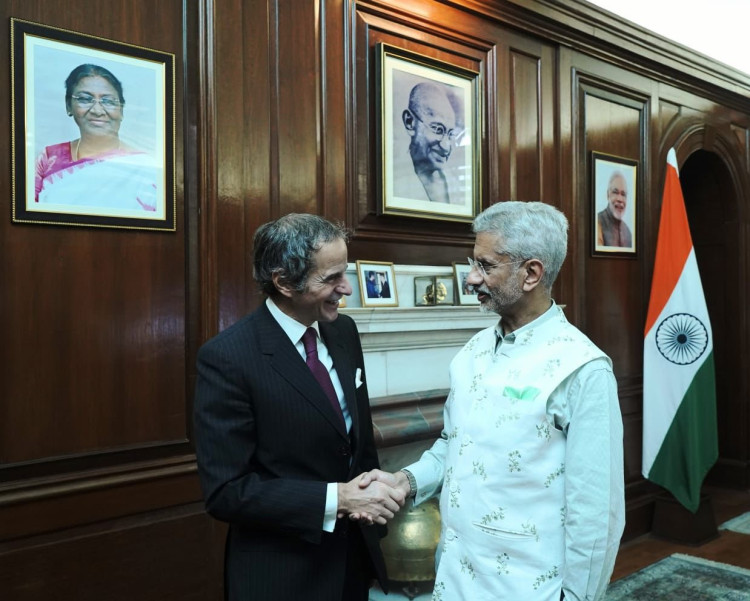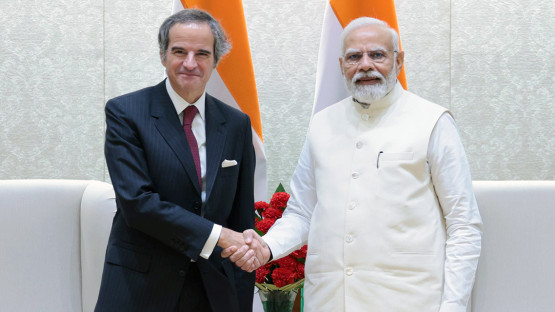
IAEA Director General Rafael Mariano Grossi met with Subrahmanyam Jaishankar, Minister of External Affairs of India, in New Delhi, 23 October. (Photo: Ministry of External Affairs of India)
In a meeting with Subrahmanyam Jaishankar, Minister of External Affairs of the Government of India, Mr Jaishankar reiterated that “India will always be a strong and reliable partner of IAEA.”
India has 19 nuclear reactors producing about 3 per cent of its electricity. With an additional eight reactors under construction and more planned, India is currently the world’s second-largest domestic builder of nuclear power plants. India’s three-stage nuclear power programme builds towards using the country’s abundant thorium reserves. India’s approach comes with a potentially global increase in the abundance of energy resource and is being closely watched, so is India’s transition to a greener economy.
A Member State since 1957, India collaborates with the IAEA through various means, such as contributing to key programmes like the Nuclear Harmonization and Standardization Initiative to advance the harmonization and standardization of small modular reactor (SMR) design, construction, regulatory and industrial approaches. The Director General aims to strengthen this and other collaborations with the country to draw benefit from India’s scientific and institutional capacities.
“Nuclear energy and technology play a big role in India’s development, benefiting its people. We aim to further strengthen our collaboration with India to maximize the potential of initiatives, such as Rays of Hope and Atoms4Food,” Mr Grossi said.
As an inaugural speaker of the distinguished lecture series of the Ministry of External Affairs at the Sushma Swaraj Institute of Foreign Service (SSIFS), Mr Grossi delivered remarks on opportunities and challenges in promoting nuclear power for sustainable development, engaging with both young and experienced diplomats. “The IAEA’s partnership with India helps us make ‘Atoms for Peace and Development’ a reality,” he stated.
On Wednesday, Mr Grossi visited the Department of Atomic Energy (DAE) in India, meeting with the Chairman of the Atomic Energy Commission and Secretary to the DAE Ajit Kumar Mohanty, as well as other senior officials of DAE.
Mr Grossi will visit Bhabha Atomic Research Centre (BARC) on Thursday and meet with the Director of BARC, Shri Vivek Bhasin. BARC is India's premier nuclear research facility headquartered in Mumbai and home to the Dhruva reactor, India's largest nuclear research reactor.
After delivering remarks in Trombay Colloquium at BARC, Mr Grossi will visit the Food Technology Division (FTD), as well as the Advance Centre for Training, Research and Education in Cancer (ACTREC). He will meet with the Director of ARTEC and other senior faculty members.









